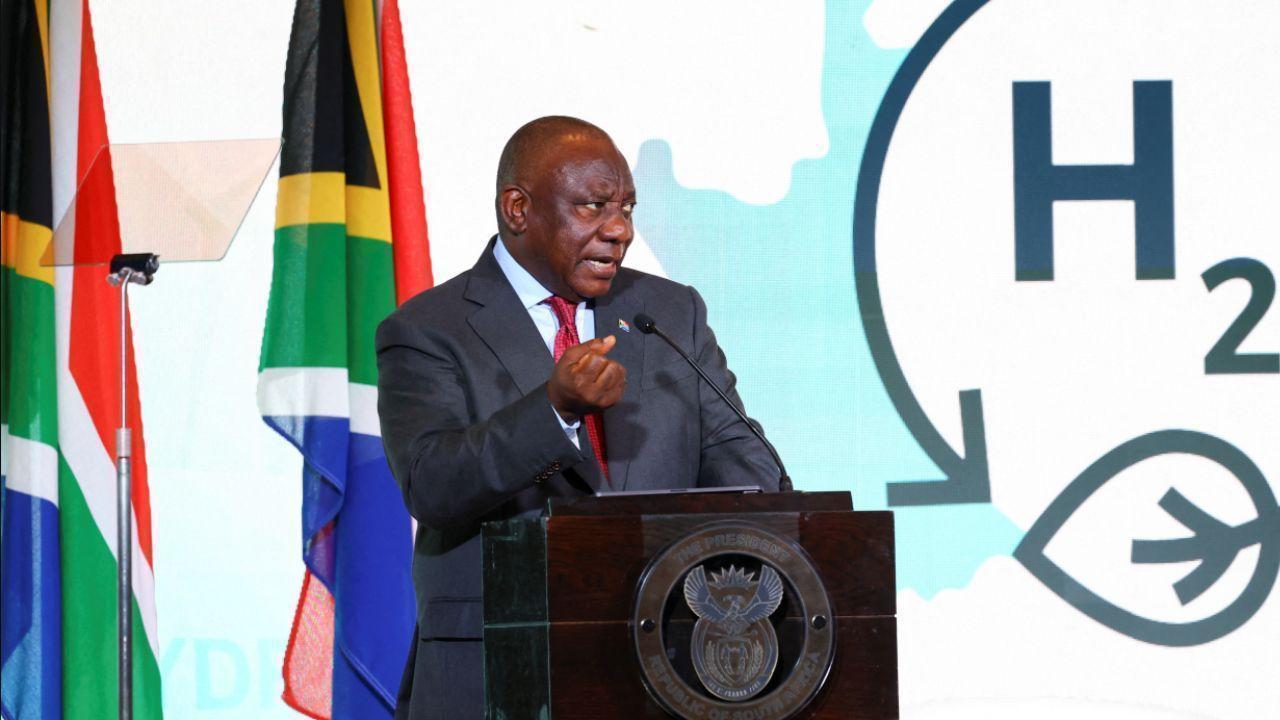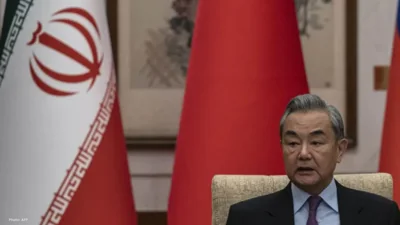
Post by : Priya
Photo:Reuters
In a significant move that could shape the future of clean energy in Africa and Europe, Germany and Kenya have formed a strategic partnership to develop and expand the production of green hydrogen. This collaboration, signed during high-level bilateral meetings in Nairobi, is expected to support global efforts to reduce carbon emissions, create new economic opportunities, and transform Kenya into a major player in the renewable energy sector.
The agreement marks a turning point for energy cooperation between Europe and Africa and highlights the growing importance of green hydrogen as a clean alternative to fossil fuels.
A Partnership Built on Clean Energy Goals
Germany and Kenya have different energy histories but share a common vision: to build a sustainable future powered by clean energy. Germany, with its ambitious climate goals and industrial expertise, is seeking reliable sources of green hydrogen to support its transition away from coal, oil, and natural gas. Kenya, on the other hand, has vast renewable energy potential, with over 90% of its electricity already coming from clean sources such as geothermal, hydro, and wind power.
The partnership will focus on developing infrastructure and capacity for producing green hydrogen in Kenya, using solar and wind energy to power electrolysis—an advanced process that splits water into hydrogen and oxygen without emitting carbon dioxide. The hydrogen produced will be used domestically and exported, particularly to European markets where demand for clean energy is growing rapidly.
Why Green Hydrogen Matters
Green hydrogen has emerged as one of the most promising clean energy carriers of the future. It can be used in industries that are difficult to decarbonize—such as steel, cement, and chemical manufacturing—as well as in transport, especially for heavy-duty vehicles and shipping. Unlike grey or blue hydrogen, which are produced using natural gas or coal, green hydrogen is made using renewable electricity and does not contribute to greenhouse gas emissions.
For countries like Germany, which has limited solar and wind capacity compared to its energy needs, importing green hydrogen from sunnier and windier nations is essential. That’s where Kenya fits in—as a renewable energy-rich country with the potential to supply clean hydrogen at scale.
What the Agreement Includes
The new agreement between the two nations includes several key components:
Infrastructure Development: Germany will invest in green hydrogen production plants, water desalination facilities (in case of coastal projects), pipelines, and storage systems in Kenya.
Technical Support and Training: German energy experts will work with Kenyan engineers, researchers, and workers to transfer knowledge and build local skills. This includes training programs in hydrogen technologies, safety standards, and renewable energy management.
Job Creation and Economic Growth: The project is expected to create thousands of jobs in Kenya, especially for young people. From plant construction to maintenance and operations, green hydrogen will open up new employment opportunities across the country.
Environmental and Social Safeguards: Both countries have agreed to ensure that local communities are involved in decision-making. Environmental assessments will be carried out to protect water sources and biodiversity, and local groups will have a voice in project planning.
A Boost for Kenya’s Economy
For Kenya, this partnership could bring long-term economic benefits. Exporting green hydrogen could generate foreign currency, reduce the country’s dependence on imported fuels, and promote industrial development. Moreover, local industries could start using hydrogen to power production, making Kenyan products more competitive and environmentally friendly.
Kenya’s President welcomed the deal, calling it a “milestone moment for Kenya’s clean energy leadership.” He also stressed the importance of making sure the benefits of the project reach ordinary citizens, especially in rural areas where energy access is still limited.
The Kenyan government has already identified several potential sites for green hydrogen projects, including areas near the coast where wind speeds are high and solar energy is abundant. These regions are also close to ports, which could be used to ship hydrogen to international markets.
Germany’s Strategic Move
Germany’s interest in Kenya is part of its broader Africa strategy to build strong, climate-focused partnerships. As the country works to meet its net-zero emissions targets by 2045, it needs vast quantities of green hydrogen—much more than it can produce at home. The German government has already signed similar agreements with countries such as Namibia and South Africa.
By investing early in Kenya’s green hydrogen sector, Germany not only secures a future energy supply but also helps strengthen diplomatic ties, create goodwill, and open new markets for its green technologies.
Germany’s climate and energy minister, speaking at the Nairobi event, said: “This is not charity. This is a win-win. We get clean hydrogen. Kenya gets jobs, growth, and new technology.”
Shared Climate Responsibility
This partnership also sends a powerful message about global cooperation in tackling climate change. For years, African countries have demanded that richer nations do more to support clean energy development in the Global South. Germany’s investment in Kenya’s hydrogen sector is a step in that direction—offering finance, technology, and fair partnership rather than loans with strings attached.
Both sides have committed to transparency, fair labor practices, and environmental responsibility. The agreement includes monitoring and review processes to ensure that progress stays on track and local communities benefit from the projects.










Mattel Revives Masters of the Universe Action Figures Ahead of Film Launch
Mattel is reintroducing Masters of the Universe figures in line with its upcoming film, tapping into

China Executes 11 Members of Criminal Clan Linked to Myanmar Scam
China has executed 11 criminals associated with the Ming family, known for major scams and human tra

US Issues Alarm to Iran as Military Forces Deploy in Gulf Region
With a significant military presence in the Gulf, Trump urges Iran to negotiate a nuclear deal or fa

Copper Prices Reach Unprecedented Highs Amid Geopolitical Turmoil
Copper prices soar to all-time highs as geopolitical tensions and a weakening dollar boost investor

New Zealand Secures First Win Against India, Triumph by 50 Runs
New Zealand won the 4th T20I against India by 50 runs in Vizag. Despite Dube's impressive 65, India